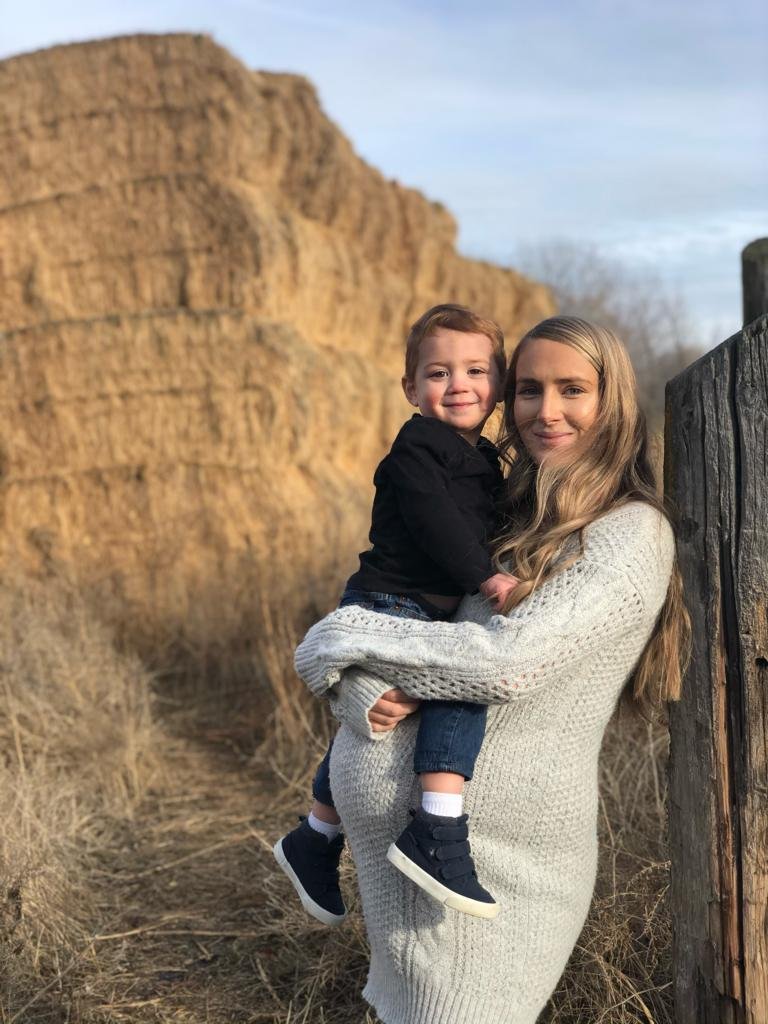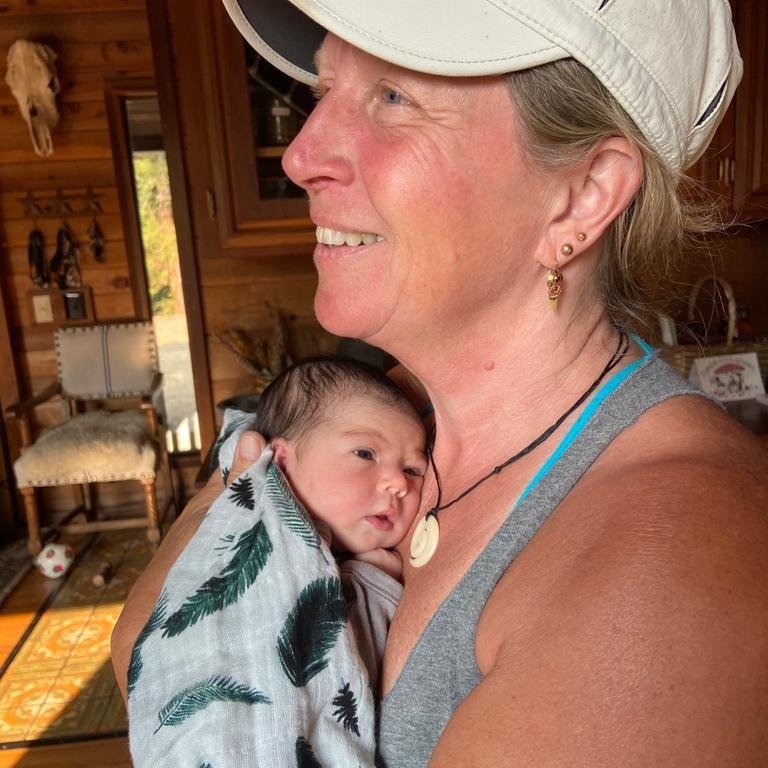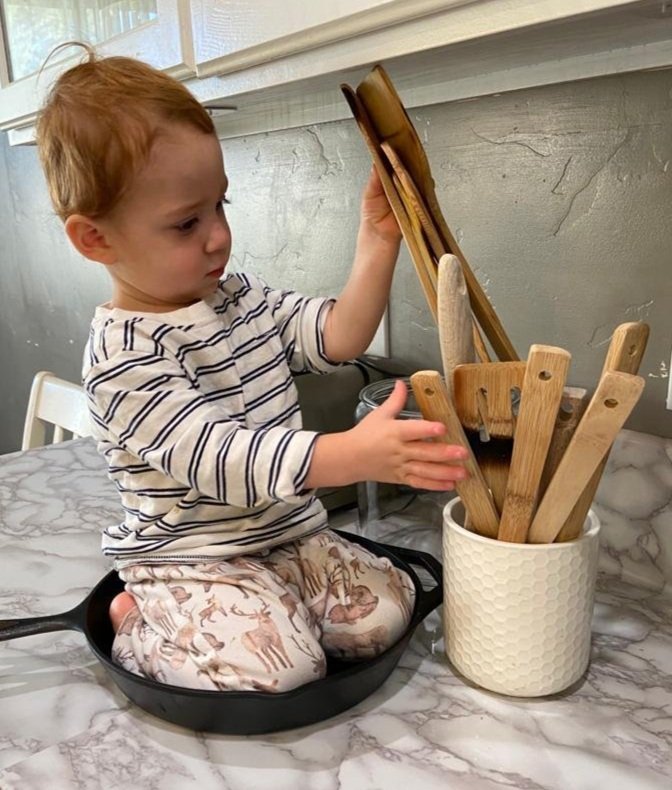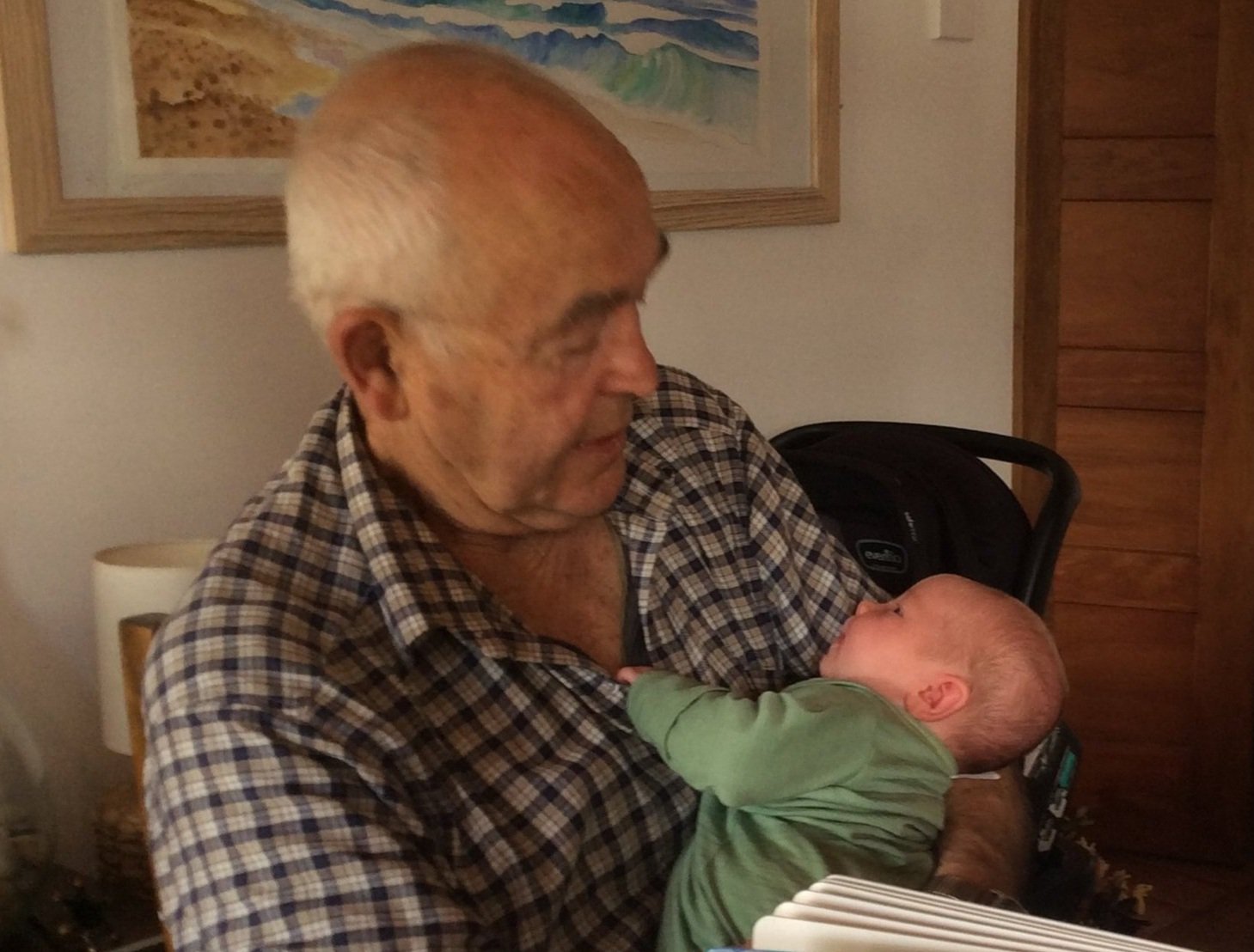
For Family/Whānau and Baby/Pēpi
Photograph by permission of friends & whānau

Service Delivery
We also offer most of our clinical services to whānau via video link if outside our area. We have worked with families in remote areas of New Zealand, the north island and overseas (Japan, USA) via video link - so location is not a problem.
Photograph by permission of friends & whānau
Consultation
Our initial consultation is a time to learn from you what has led you to seek us out. The process of becoming a parent is complex. Pregnancy and birth can be complex. Parenthood is complex. Babies/pēpi and toddlers are complex. Wherever you are on this path, there are many reasons why you might seek us out . . .
Photograph by permission of friends & whānau
Pre-conception . . .
Prior to conception, you may want to sort out, either individually or as a couple, your hopes and your fears about the possibility of bringing a new life into this world or about being parents. You may have more specific concerns you wish to discuss in a safe place with those who will respect your confidentiality.
Our training in multiple approaches such as: family therapy, couples counselling, solution-focused therapy, cross cultural counselling and child focused psychotherapy provides us with the skills to support you in this pre-conception phase.
Photograph by permission of friends & whānau
Pregnancy . . .
During early pregnancy you may have concerns around your health or the health of the baby/pēpi about which the midwife, GP and/or obstetrician have reassured you, but the concerns persist. Later in pregnancy you might feel the need to meet, either individually or as a couple, to discuss the reality of this growing pēpi/baby and what that means for you.
Recent research has shed more light on how crucial this time in utero is for the baby and for you to begin to build a relationship with one another. We have kept abreast of the latest research on the intrauterine development of your unborn baby/pēpi in order to share that knowledge with you. We also are trained in interventions which promote the relationship between the growing baby/pēpi and you. Pregnancy is a time of extraordinary changes for everyone, a time in which pēpi/baby and you will benefit from support.
Photograph by permission of friends & whānau
Birth . . .
Giving birth is an initiation rite for baby/pēpi and for you, as the parent(s). Often life takes over and moves on very quickly, leaving pēpi/baby and you little time to process the birthing experience. Whether the birth has gone as hoped for or it was difficult, you may want to have an opportunity, in a place of safety, to process what happened. What defines a positive or traumatic birth is different for each person. What matters to us is your perception of the birthing experience.
Photograph by permission of friends & whānau
The training in cross cultural counselling underscores the importance of healing practices from around the world. There are many cultures which understand the significance of the birthing experience as an initiation rite and provide baby/pēpi and parent(s) with a container, which enables them to assimilate the major changes they are undergoing as individuals and as a family/whānau. We bring this perspective to our work with babies and their families following the birth. For those whose birthing experience was traumatic to them, we are Level II trainers out of the Child Trauma Academy, which provides us with a solid foundation, not only in the effects of trauma, but also in practical ways to alleviate those effects and begin to “heal a bad birth”.
Peri-natal . . .
The first months after the birth of your baby/pēpi are a time of adjustment for everyone. This may be a good time to consult with us, either individually or as a couple, especially if either or both of you are experiencing heightened anxiety and/or postnatal depression.
As infant and toddler specialists, we know the first two months after birth are when the pēpi/baby’s central nervous system is becoming organised, which implies a period of disorganisation for the whole family/whānua. The baby/pēpi has so much to learn about this new world. For instance, she doesn’t know the difference between day and night!
Photograph by permission of friends & whānau
We trained in the Newborn Behavioural Observation (NBO) System as a way to share with parents all the things their newborn pēpi/baby can do and all the ways the baby/pēpi is communicating using her whole body. We also are trained in the Parent Child Interaction (PCI) Feeding & Teaching Scales, another observational tool which helps parents to see all they and their baby are doing to contribute to the building of the early relationship.
Infancy . . .
Infancy is a time of rapid growth for the entire family/whānua! Families often seek us out during this period because of concerns around ongoing sleep and feeding issues, possible delays in development, persistence of inexplicable crying, extreme levels of activity or inactivity, avoidance of social interaction, marked sensory issues, to list a few.
After the first three months, if your baby/pēpi is continuing to cry inconsolably for prolonged periods of time and/or if she persists in constant, frequent (every 20 minutes to half hour) waking and/or she consistently refuses novel foods, following the introduction of solids, you may wish to seek us out for an initial consultation. The sooner these concerns are addressed the better for everyone.
We always try to work in close communication with your GP and/or paediatrician. Their role is to provide a medical evaluation. Our role is to work alongside your pēpi/baby and you to understand what may be occurring, to assess what sensory issues may be contributing to the sleep, mood and feeding problems, and to help you and your baby/pēpi foster a relationship that makes room for disruptions and seeks repairs. We are trained to administer a Sensory Profile Questionnaire, which helps you to understand how your pēpi/baby responds to the external and internal environment. Depending on your pēpi/baby’s sensory profile we can help you develop a sensory diet specific to your baby/pēpi. We are trained in Baby Massage, which means we train you how to massage your pēpi/baby. We also are trained in Child Focused Psychotherapy, which scaffolds baby/pēpi and you as you come to know one another.
Photograph by permission of friends & whānau
Toddlerhood & beyond . . .
Toddlerhood is often a time when the above concerns, which have been there for a while but were able to be set to the side because the baby/pēpi was small, come to the forefront. Also, it might be a time when conflicts arise. The toddler now has the need to assert herself. Sometimes you might feel distressed by the demand to be constantly vigilant, especially if your toddler is highly active. In other instances, that feeling of “something is not right” may be present.
Photograph by permission of friends & whānau
When you come to us with a concern at the toddler stage, we listen carefully; you are the expert, and we want to learn from you about your toddler. Following the initial consultation, if together we agree follow up is needed, we may come to your home and spend some time with your toddler and you. If your toddler is in preschool, we may observe her in that environment. We bring years of experience in the field of child development and training in the use of microanalytic observational tools to the task of observing your child in various environments. If it seems further assessment is needed, we are trained in the use of the Transdisciplinary Play Assessment as well as the Parent Child Interaction Feeding and Teaching Scales. These assessments will assist all of us to better understand your concerns and to be able to develop a plan with you.
Anytime . . .
Rarely do families come to us with clearly defined concerns. Often what brings them to our service is a sense that “something is not right.” We see you, the parents, as the experts where your child is concerned. We listen and work with you to try to understand and to think about what might be helpful.
Photograph by permission of friends & whānau

Services Offered
Photograph by permission of friends & whānau
Assessments
Photograph by permission of friends & whānau

Sensory Profile
Sensory Profile provides questionnaires to parents and teachers for evaluating your pēpi / baby, tamariki / child’s sensory processing patterns in the context of everyday life. This information can help to determine how your tamariki / child’s sensory processing may be supporting or hindering their participation in everyday life.
This assessment is usually part of a wider assessment.
Photograph by permission of friends & whānau
Bayley Scales of Infant & Toddler Development
The Bayley Scales are designed to assess your pēpi / baby’s development - cognitive, language, motor, social-emotional and adaptive behaviour. The scores from the Bayley Scales help to decide if your pēpi / baby / toddler is progressing well or if they are having some difficulties in certain areas of development.
Cost: $400 Includes assessment, report & recommendations
Photograph by permission of friends & whānau

Parent-Child Interaction Feeding & Teaching Scales
The NCAST Parent - Child Interaction scales (Feeding & Teaching) assesses parent/caregiver's sensitivity to infant's cues, response to infant's distress, social emotional growth fostering, cognitive growth fostering and baby's cues and responsiveness to parent/caregiver utilising either a feeding interaction or teaching interaction. Pivotal to the scales is the understanding of infant states and infant engagement and disengagement cues (subtle and potent). The NCAST PCI scales are not a one-time assessment.
Photograph by permission of friends & whānau
Ages & Stages
The Ages and Stages Questionnaire (ASQ) is designed to screen the infant’s and toddler’s development in order to identify whether further evaluation or monitoring is required.
Photograph by permission of friends & whānau

Interventions
Photograph by permission of friends & whānau
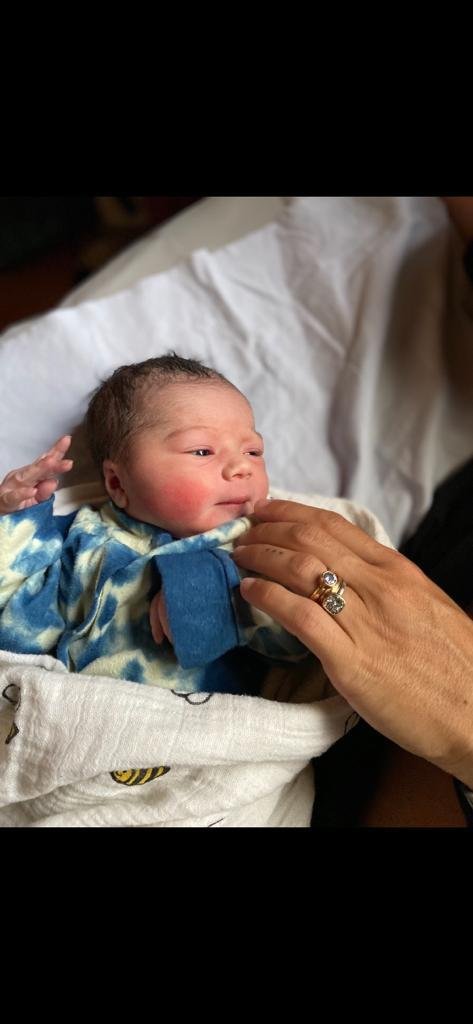
Behavioural Observations System
Newborn Behaviour Observation System (NBO) is a structured, neuro-behavioural observation which is strength-based, and relationship based, and enables infant specialists and family workers to describe and interpret infant behaviours along with parents.
NBO gives the infant a voice. It tells the infant’s story, and it gives the parent(s) a voice, telling the family story. By standing alongside the parents as they observe their newborn and helping them to see all their newborn can do, the practitioner forms a collaborative and trusting relationship with the parents and extended whanau, facilitating the experience of mutual delight among them all.
Photograph by permission of friends & whānau
Facilitating Attuned Interactions (FAN)©
The Erikson Institute Fussy Baby Network developed a visual in the shape of a fan to assist in the understanding of what research had shown was an effective approach utilised by practitioners to lower the risks due to prolonged, inconsolable infant crying.
The development of the Fan, as a preventative intervention, grew out of the need for practitioners to have a framework to contain and protect them as they attempted to support the regulation of the caregiver and the regulation of the infant during prolonged incidents of intense crying bouts when the crying was not reduced by the soothing attempts of the caregiver. The goal of the provision of a framework (the FAN) is to allow the practitioner to remain regulated enough to engage in a sequence of responses: empathic listening, calming behaviours, collaborative problem solving, capacity building and, ultimately, facilitation of the caregiver’s ability to make a new discovery or be able to reflect. The steps are sequential and are designed to increase parental confidence, strengthen the infant-parent relationship and promote healthy development of infants and caregivers.
Photograph by permission of friends & whānau

Circle of Security -Parenting
The Circle of Security® Parenting™ program is a attachment-based parenting education program that helps parents better understand and build on their relationships with their children. This program supports parents to: Understand their child's emotional world by learning to read emotional needs.
Photograph by permission of friends & whānau
Baby Massage
Baby massage is a relatively easy intervention, used throughout the world, which has a positive effect on babies and their parents. Having undergone the Baby Massage training, Sarah can teach caregivers the technique of doing baby massage as a way to build bonds between themselves and their babies (Pados and McGlothen-Bell, 2019).
The anatomical definition of massage intervention is a manual application, by the caregiver's hands, onto certain structures located within the soft tissues of the skin, fascia, muscles, ligaments, blood vessels, and tendons (Zhang and Wang, 2019).
Photograph by permission of friends & whānau
Soft massage of the baby is a beautiful means of bonding between the baby and parents (Roesli, 2016). Much research has proven that, along with strengthening the baby/caregiver bond, baby massage done by parents (especially mothers) can provide benefit to the baby: weight gain, better sleep, reduction (and possibly elimination) of colic and better overall physiological and behavioural responses (Dalili et al., 2016; Wahyuni et al., 2018).
We have witnessed the mutual delight between baby and caregiver when engaging in this fun, sensory experience! Babies respond to attuned touch. They need and like to touch and to be touched, and especially they like to be touch and be touched by you, the primary caregiver.

Watch, Wait & Wonder Intervention ©
Watch, Wait and Wonder intervention (WWW) is a psychotherapeutic approach that provides space for the dyad to work through developmental and relational struggles through play and reflection.
Photograph by permission of friends & whānau
Child Focused Psychotherapy
Therapeutic work with parents is a widely adopted practice when working with infants/toddlers or young children. The therapeutic process within these parent sessions is helpful for both your child and you. We tend to work in these sessions with your baby/pēpi or toddler present, as this work is about you and your child.
Photograph by permission of friends & whānau

What Families/ Whānau have shared with us
Photograph by permission of friends & whānau
-

“Thank you for the support and guidance you have given us as we try to better understand and connect with our beautiful daughter” A Mother
-

“Let the world hear your voice for what you’ve done…. We are your evidence that your work helps children, primary caregivers and even the next generation” A Father
-

“I want to thank you from the bottom of my heart. You have a nurturing quality that has touched me. You have helped me so much. Given me the strength and courage to be a mum.” A Mother
-

“Thank you so much for all your help ❤️ … you have been a great support and I’m very grateful.” A Mother
How much does it cost?
We offer “sliding scale” pricing
Standard Rates from $120 per session
If cost is a barrier, please contact us as we can arrange payment plans or advise on alternative funding
Let’s talk . . .
Funding Options
Sarah is registered with Gumboot Friday, which provides 2 free sessions - https://www.gumbootfriday.org.nz/
Your child may be eligible for Child Disability Allowance through WINZ - speak to your GP - https://www.workandincome.govt.nz/products/a-z-benefits/child-disability-allowance.html
You may be eligible to apply to charitable trusts for funding, e.g. Wilson Home Trust - https://wilsonhometrust.org.nz/grants/
You may be eligible for funding through Oranga Tamariki - speak to your case worker
You may be eligible for funding through High & Complex Needs - https://www.hcn.govt.nz/
Your employer may fund support through their employment support fund
Small Business owners may be eligible for services through https://firststeps.clearhead.org.nz/
Your health insurance may cover costs.
Your GP may be aware of other funding sources to help with costs.
Let’s Talk . . .
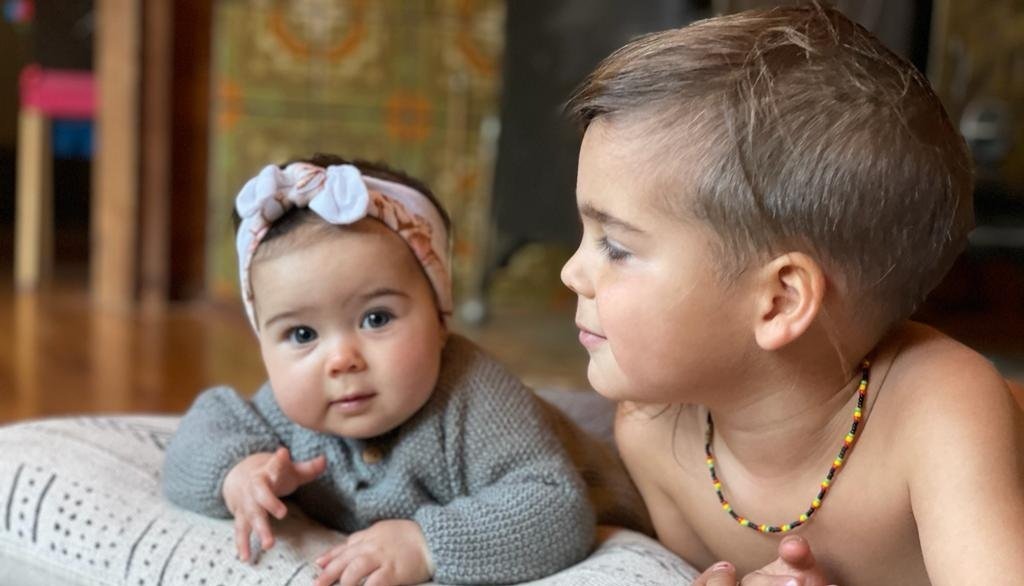
The people we serve are expects by experience
Photograph by permission of friends & whānau


